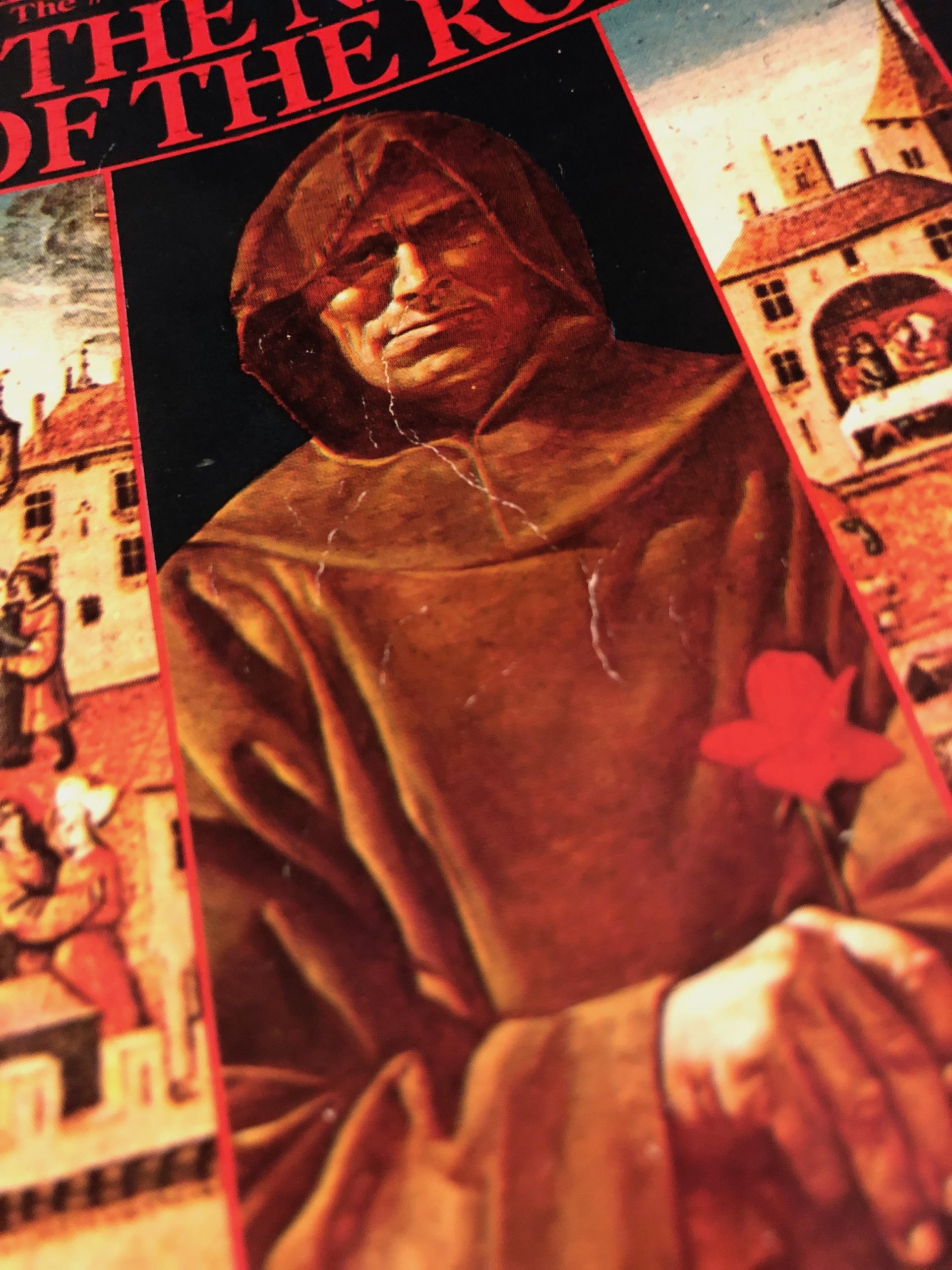Thoughts: The Name of the Rose

Faith and fear can be dangerous weapons. Few books illustrate this more clearly than Umberto Eco’s masterpiece, The Name of the Rose. It takes William of Baskerville, a 14th century version of Sherlock Holmes, and his apprentice, Adso (the narrator), seven days at an Abbey to unearth deadly secrets that ultimately lead to the demise of almost everyone involved. Through semiotics (the study of sign process), biblical analysis, and a myriad of other literary theoretical tools, Eco takes the reader on a murder mystery journey that will bring them inevitably face-to-face with the Antichrist.
William was directed initially by the Abbot to have faith in him and avoid the Abbey library during the course of his investigation into the deaths. Access to the library was restricted to the Librarian and Assistant Librarian. There was nothing to see inside, according to the Abbot, despite the fact it was known to hold all of the secrets of the Abbey and literary world. Had William and Adso not broken this rule, they likely would not have unraveled the plot that had plagued the Abbey for years.
The murders that transpired over the seven days in question were driven by fear. Namely, the fear that one monk had over the laughter described in Aristotle’s Second Poetics on comedy, a rare volume that in present day has been lost to the ages. This monk feared that the book taught others how to distort the face of every truth with laughter and comedy. He despised this possibility, and without giving too much away, fought relentlessly to suppress any knowledge of this particular book.
Many died because of his efforts. Although not everyone perished directly because of this monk’s actions, the fear that compelled him to tuck this knowledge away in the most secretive parts of the library set the wheels in motion that doomed anyone curious enough to try to discover it. It helped create an environment of moral depravity, leading one young monk to commit suicide near the beginning of the book out of religious shame for his homosexual relationship with another monk.
William of Baskerville skillfully attempts to solve the mysteries of these murders through his toolbox of logic, wit, and investigative prowess. With the help of Adso, he eventually succeeds, but only by happenstance, flipping the modernist narrative on its head as the story does not conclude in a final, perfectly tied bow. The reader is left almost unsatisfied, yet in awe, because William discovers little and is basically defeated in the end, even though he had unwrapped the entire plot. William finds the truth by accident, concluding the narrative almost without meaning.
The book questions the unwavering belief many of us have in dogmatic and self-sufficient metaphysical truths. As William astutely states toward the end of the story, “Perhaps the mission of those who love mankind is to make people laugh at the truth, to make truth laugh, because the only truth lies in learning to free ourselves from insane passion for truth.” His thoughts and advice on books could also be applied to the faith we invest in popular beliefs when he says, “Books are not made to be believed, but to be subjected to inquiry. When we consider a book, we mustn’t ask ourselves what it says but what it means, a precept that the commentators of the holy books had very clearly in mind.”
Fear should not drive faith. Whether it’s fear of holding an unpopular belief or of finding virtue in laughter, as William does, it should not dictate what one believes. In fact, a metaphysical truth that cannot sustain challenges from unpopular beliefs or laughter probably warrants any existential threats it receives. And The Name of the Rose does just that to the common belief that stories must end with meaning and symbolism by concluding its narrative by accident. For in the end, the core truth is to free ourselves from truth itself.



0 Comments